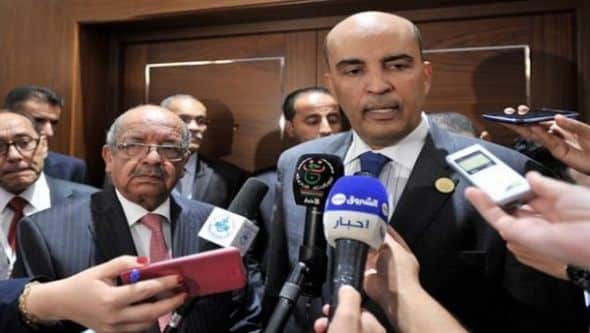The LAB said 44 Libyan companies and 24 foreign companies could be involved in “money smuggling” using letters of credit, and accused them of damaging Libya’s economy
The Beida-based Libyan Audit Bureau (LAB), loyal to the House of Representatives in Tobruk, has announced the names of over 60 international and Libyan firms it has accused of smuggling foreign currency.
The firms include four Maltese companies, three of which are Libyan-owned, which are mainly involved in the exportation of goods to and from Libya.
MaltaToday has been unable to verify the allegations of the Libyan Audit Bureau (LAB), which made its claims in a published report and a letter to the Central Bank of Libya.
The LAB said 44 Libyan companies and 24 foreign companies could be involved in “money smuggling” using letters of credit, and accused them of damaging Libya’s economy.
The LAB said that there should be no letters of credit pending investigations. The Central Bank governor Al Siddiq Al -Kabeer in turn ordered a financial committee tasked to track money laundering to investigate the LAB’s accusations.
Al-Kabeer called on the LAB to send the evidence it has to the financial committee so it can take the needed legal measures.
The four Maltese companies listed by the LAB are Tax Free Services Ltd, Akakus International, S.A.M. International, and Action Corporation Ltd.
MaltaToday was only able to get in touch with one of the owners of Tax Free Services, Dione Drago, who denied any allegations of impropriety as suggested by the LAB report which MaltaToday shared with him.
“The last letter of credit I received from Libya was in 2016 and I never received any other payment from the Central Bank or any other Libyan bank. I don’t know how my company is mentioned in that list, and why. Maybe it’s because someone over there doesn’t like me.”
The other three companies are owned by Libyan nationals both resident in Malta as well as in Tripoli. MaltaToday was unable to get in contact with them.
In its report, the LAB reviewed what it described as “cases of money laundering” using letters of credit, suggesting that its samples showed over $334 million (€286 million) in foreign currency had been lost.
The LAB said the letters of credit are issued to trading companies to supply large amounts of goods to Libya, but instead the full value of these goods is never received. It claimed traders inflated prices, introduced excessive packaging to inflate volumes of goods delivered, manipulated livestock weight data, tampered with documents using false certifications, and even delivered empty containers.
It reserved special criticism for companies from the United Arab Emirates, which were using outdated government certifications for the supply of food during the month of Ramadan.
However, the Central Bank of Libya has expressed caution about the LAB’s name-and-shame exercise. “The CBL has qualms about the publishing of the names of firms by the Audit Bureau before due investigations as it could hinder the ongoing probe and lead to loss and hiding of evidence,” Al-Kabeer said.
“Agreeing on giving letters of credit is a task for the committee of importation budget of the Ministry of Economy, which is under the monitoring of an Audit Bureau commission. We find it strange that the Audit Bureau agreed to give the letters of credit in the first place and then accused the firms of corruption.”
The LAB has asked the Central Bank of Libya to stop dealing with the bank accounts of the involved firms who it accused of exporting “phantom supplies”.
The LAB said that despite its reports to the Libyan authorities, which are still operating under fragmented loyalties as the Government of National Accord struggles to take complete control, “the concerned parties remain idle… the problem does not get addressed, and there is no effort to combat smugglers who find a way to circumvent the rules or uncover loopholes, while the open economic reforms result in humiliating exchange rates.”
The use of letters of credit has been criticised by Libyan MPs for its negative effect on Libya’s fast-depleting foreign currency reserves. The foreign currency shortage led to a black market exchange rate for the US dollar, which became more expensive to procure with Libyan dinars. Without its regular volume of oil production, Libya can suffer from a lack of hard currency for its large consumer import bill.














